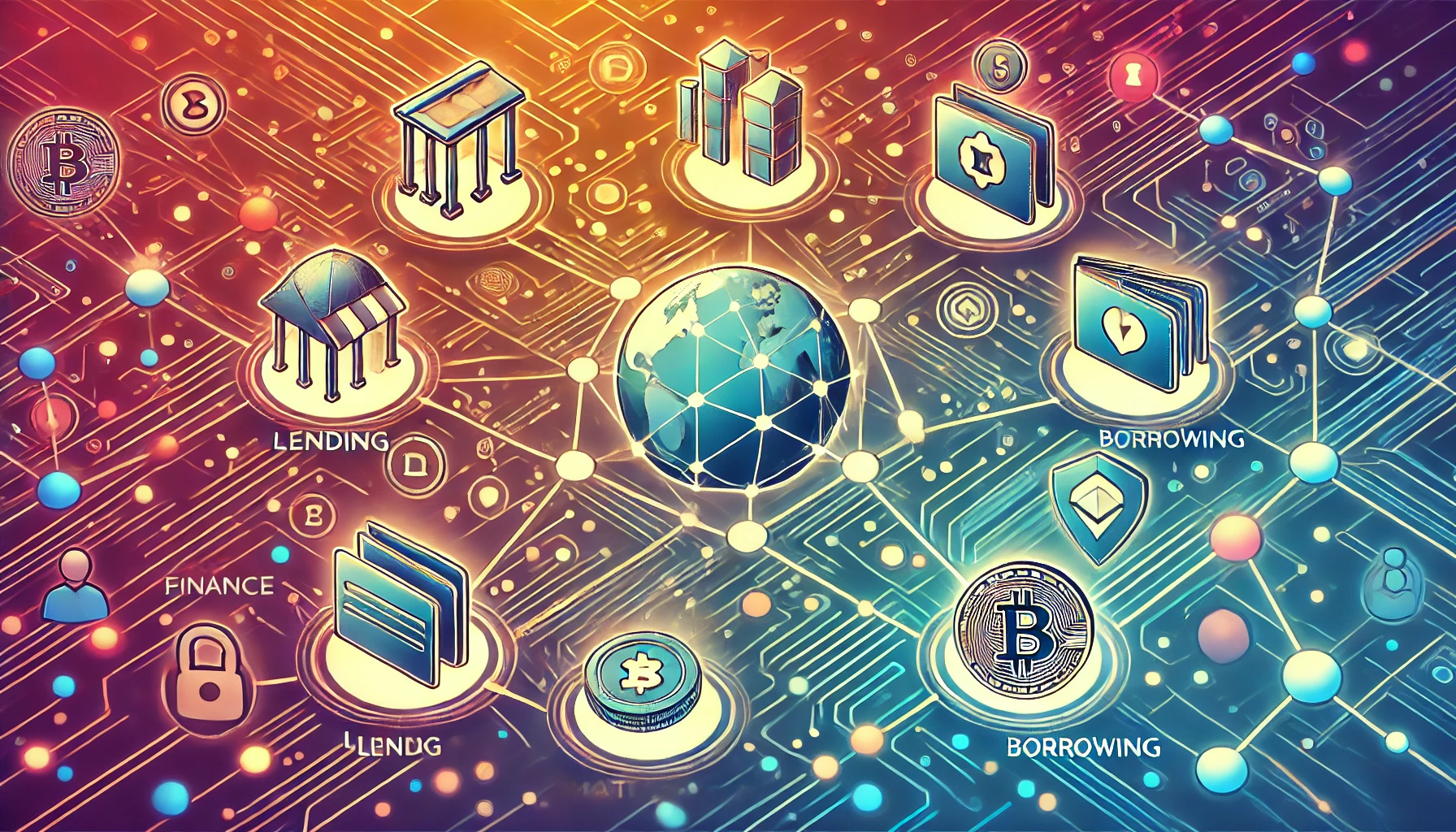What is DeFi?
DeFi refers to a system of financial applications built on blockchain technology. Unlike traditional finance, which relies on centralized institutions like banks, DeFi operates on decentralized networks, primarily the Ethereum blockchain. These systems use smart contracts—self-executing pieces of code—to automate and secure financial transactions.
In simpler terms, DeFi removes the need for middlemen. Instead of trusting a bank to manage your money, you trust a transparent and immutable system of code.
Decentralized Finance (DeFi): A Revolution in the Financial World
Imagine a world where you can borrow, lend, invest, or earn interest without ever stepping into a bank or relying on a middleman. This is the promise of Decentralized Finance, or DeFi. It’s not just a buzzword; it’s a groundbreaking movement that’s changing how people interact with money. Let’s break it down step by step.
Key Features of DeFi
Transparency: Every transaction in DeFi is recorded on a public blockchain. Anyone can view it, ensuring complete transparency.
Accessibility: All you need is an internet connection and a digital wallet. DeFi applications are open to anyone, anywhere in the world.
Interoperability: DeFi platforms can often work together, allowing users to combine services like lending, borrowing, and trading seamlessly.
Control: Users retain full control over their assets, eliminating the risk of a bank freezing or seizing funds.

Examples of DeFi Applications
Here are some real-world examples to illustrate how DeFi works:
1. Lending and Borrowing:
Platforms like Aave and Compound allow users to lend their cryptocurrency and earn interest or borrow assets by providing collateral. For instance, you can deposit Ethereum (ETH) as collateral and borrow a stablecoin like USDC against it. The smart contract ensures everything is executed fairly.
2. Decentralized Exchanges (DEXs):
Uniswap and SushiSwap are popular DEXs that enable users to trade cryptocurrencies directly with one another. Unlike traditional exchanges, there are no intermediaries or account setups. The trades are executed via liquidity pools managed by smart contracts.
3. Stablecoins:
Stablecoins like DAI or USDT are a significant part of DeFi. They are cryptocurrencies pegged to stable assets like the US Dollar, providing a hedge against volatility while keeping transactions fast and cheap.
4. Yield Farming:
Yield farming allows users to earn additional cryptocurrency rewards by staking their assets in DeFi platforms. For instance, a user might provide liquidity to a DEX and earn a share of the transaction fees in return.
How Does DeFi Benefit Common People?
Here’s why DeFi is a game-changer for everyday users:
Financial Inclusion: DeFi opens doors for the unbanked and underbanked populations. People who don’t have access to traditional banking services can still borrow, save, and invest using DeFi platforms.
Cost Savings: Without intermediaries, transaction fees are significantly lower. Whether you’re sending money abroad or trading assets, you save money.
Ownership: You own your funds and have complete control. No one can freeze your account or dictate how you use your money.
Risks Involved in DeFi
While DeFi has enormous potential, it’s essential to understand its risks:
Smart Contract Vulnerabilities: If a smart contract has bugs or flaws, hackers can exploit them to steal funds. For example, in 2020, a platform named Harvest Finance lost millions due to such an exploit.
Market Volatility: Cryptocurrency prices are highly volatile. If the value of your collateral drops suddenly, you could lose your assets.
Regulatory Uncertainty: Governments around the world are still figuring out how to regulate DeFi. Changes in regulations could impact the platforms and their users.
The Future of DeFi
The DeFi ecosystem is rapidly evolving. Innovations like decentralized insurance, prediction markets, and even decentralized identity systems are emerging. As technology advances and user education improves, DeFi could become a cornerstone of the global financial system.
However, for it to truly benefit the masses, user-friendly interfaces, better security measures, and regulatory clarity will be critical.
Conclusion
Decentralized Finance is reshaping the financial landscape. By providing open, transparent, and accessible financial services, it empowers individuals worldwide. Whether you’re an investor, a borrower, or someone looking to earn passive income, DeFi offers opportunities that were once unimaginable. As always, approach this space with caution, educate yourself, and explore the endless possibilities that DeFi brings.







1 Comment
[…] DeFi Ecosystem: By participating, you’re contributing to the growth and operation of decentralized […]